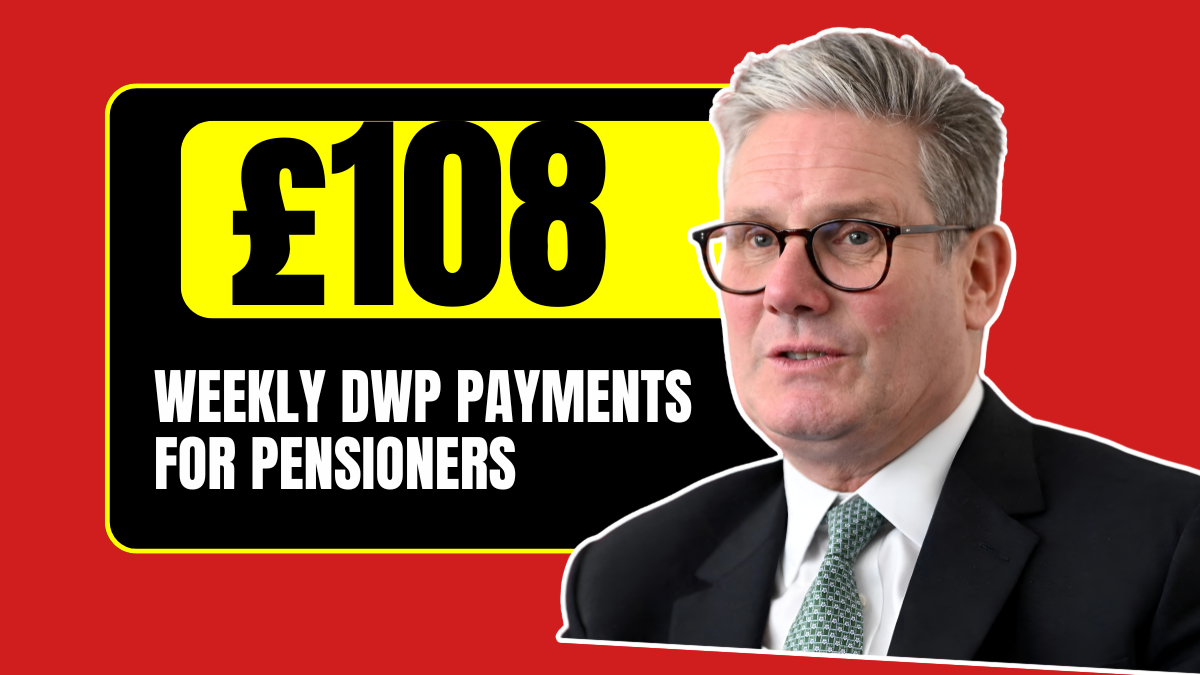Many older adults across the UK may be missing out on a vital source of financial support that could provide up to £108.55 every week—and they may not even know they’re eligible for it.
If you, your parents, or anyone you care for is over State Pension age and living with a long-term illness, disability, or mental health issue, it’s worth looking into the Attendance Allowance provided by the Department for Work and Pensions (DWP).
The best part? This benefit is non-means-tested, which means your savings, income, or assets won’t affect your eligibility. Let’s explore how this often-overlooked support works, who qualifies, how much you could receive, and how to apply the right way.
What Is Attendance Allowance?
Attendance Allowance is a non-taxable benefit paid by the DWP to people who have reached State Pension age (currently 66 in 2024) and need help with daily personal care because of a physical or mental condition.
This benefit is not linked to mobility issues (for that, benefits like Personal Independence Payment or Disability Living Allowance are available). Instead, it focuses on helping older people who require care or supervision to stay safe or complete daily tasks.
You don’t have to have a full-time carer to qualify. You just need to show that you need regular assistance or frequent supervision to manage daily life.
Why Is Attendance Allowance Important?

As we age, many of us develop health challenges—be it arthritis, dementia, poor eyesight, or limited mobility. These conditions can affect how we wash, dress, eat, manage medications, or stay safe.
Unfortunately, care costs can rise quickly, and many pensioners live on tight fixed incomes. That’s where Attendance Allowance steps in—it’s designed to ease that burden.
Here’s what you need to know at a glance:
| Feature | Details |
|---|---|
| Weekly Payment | £72.65 (Lower Rate) / £108.55 (Higher Rate) |
| Payment Frequency | Every four weeks |
| Eligibility Age | 66 and over (State Pension age) |
| Means-Tested? | No – your income and savings don’t matter |
| Covered Conditions | Physical, mental, or sensory impairments |
| Application Method | By post – via Attendance Allowance form |
| Processing Time | Usually 6 to 8 weeks |
| Official Website | www.gov.uk/attendance-allowance |
Who Can Qualify? Let’s Break It Down
You don’t need to be in a care home or have a live-in carer to apply. But you do need to meet certain criteria related to your age, condition, and level of help needed.
1. You Must Be State Pension Age or Older
This is a benefit specifically designed for people who have reached the official State Pension age. In 2024, that age is 66 years for men and women in the UK. You can apply any time after reaching this age.
2. You Have a Physical or Mental Health Condition
This can include a wide range of long-term conditions that affect your ability to look after yourself. Some common examples are:
- Arthritis – if joint pain makes it hard to dress or get in and out of bed
- Dementia or Alzheimer’s disease – if you forget medications or get confused easily
- Parkinson’s disease – if tremors or stiffness affect everyday movements
- Severe sight or hearing loss
- Chronic obstructive pulmonary disease (COPD) or heart failure
- Mental health conditions like anxiety, depression, or schizophrenia
It doesn’t matter what the condition is called—what matters is how it affects your daily life.
3. You Need Help Regularly
The help you need doesn’t have to be physical assistance. It could include:
- Supervision to avoid falls or accidents
- Help with dressing, eating, or washing
- Reminders to take medication
- Assistance with using the toilet safely
- Night-time monitoring if you wake frequently or become disoriented
You must have needed help for at least six months, unless you’re terminally ill, in which case you can apply straight away under special fast-track rules.
How Much Could You Get?
There are two different rates depending on when and how often you need help:
| Rate | Weekly Amount (2025) | You May Qualify If… |
|---|---|---|
| Lower Rate | £72.65 | You need help either during the day OR at night |
| Higher Rate | £108.55 | You need help during both day AND night, or terminally ill |
So over a full year, this could mean receiving up to £5,644.60 to support your care needs.
How to Apply for Attendance Allowance (Step-by-Step

Although the process may seem daunting, applying is quite straightforward once you know what to expect.
Step 1: Get the Application Form
You can request the form in three ways:
- Call the DWP Attendance Allowance Helpline at 0800 731 0122
- Download the form online at www.gov.uk
- Request a paper copy by post
If you phone for the form, your claim will be backdated to the day you made the call, which can help you get extra money.
Step 2: Fill Out the Form Carefully
This is the most important part. The form asks for:
- Your name, address, and National Insurance number
- Details about your health condition
- Information about the kind of help you need and how often you need it
- Prescriptions, doctor’s letters, care plans, or other evidence
Be honest and detailed. Talk about your worst days, not just your best ones. If you can only manage a task sometimes or with great difficulty, mention it.
Tip: It helps to keep a daily diary of what help you need before filling out the form.
Step 3: Send Your Form to the DWP
Once completed, send the form to:
Freepost DWP Attendance Allowance
No stamp is needed. But make sure to:
- Keep a photocopy of everything you submit
- Consider sending it via recorded delivery for peace of mind
Step 4: Wait for the Decision
You’ll usually hear back within 6 to 8 weeks. Sometimes, the DWP may:
- Contact your GP for more information
- Request further documentation
- In rare cases, arrange a medical assessment (especially if things are unclear)
What Else Could You Get with Attendance Allowance?
Attendance Allowance often acts as a gateway benefit, meaning it can open the door to other helpful financial support. For example:
- Pension Credit – A top-up for low-income pensioners
- Council Tax Reductions – Depending on your local authority and circumstances
- Carer’s Allowance – If someone helps care for you, they might qualify
- Winter Fuel Payment / Cold Weather Payments – Help with heating bills
- Free TV Licence – If you’re over 75 and receive Pension Credit
If you’re awarded Attendance Allowance, it’s a good idea to check in with a benefits advisor or use a calculator on Gov.uk or Turn2us.org.uk to see if you now qualify for additional support.
Common Myths and Mistakes to Avoid
Many people wrongly assume they don’t qualify because:
- They live alone or don’t have a carer
- They’re “managing okay” or “don’t want to bother the system”
- Their condition isn’t formally diagnosed
But in reality:
- You can qualify without a carer—it’s about your need for help, not whether you’re receiving it
- You don’t need a specific diagnosis—just a description of how your condition affects your daily life
- If your condition has worsened, you can reapply or ask for a reassessment
So, if in doubt, apply anyway. There’s nothing to lose and potentially thousands of pounds to gain.
Final Thoughts:
Growing older often brings new challenges, but that doesn’t mean you have to face them without support. The DWP’s Attendance Allowance is designed to give pensioners the help they deserve—whether it’s a little extra to cover care costs, improve home safety, or simply enjoy a more comfortable and independent life.
If you or someone you care for is over 66 and living with a long-term condition, take the time to check eligibility and apply. That £72 or £108 per week might just make a world of difference—and it’s your right to claim it.
FAQs
1. What are the £108 weekly DWP payments for pensioners?
These are government support payments provided by the Department for Work and Pensions (DWP) to eligible pensioners, usually through Pension Credit or other qualifying benefits.
2. Who qualifies for the £108 weekly payment?
You may qualify if:
You are of State Pension age
Your weekly income is below a certain threshold
You meet residency and income-based eligibility rules
3. Is this payment automatic?
No, you must apply for it. If eligible, payments are made weekly or every four weeks, depending on your chosen method.
4. How can I claim the £108 weekly payment?
You can apply for Pension Credit:
Online via the UK government website
By calling the Pension Credit claim line
Or by posting a completed application form
5. Can I claim if I already receive State Pension?
Yes. Receiving State Pension does not disqualify you from getting this payment. Pension Credit can top up your existing income.


